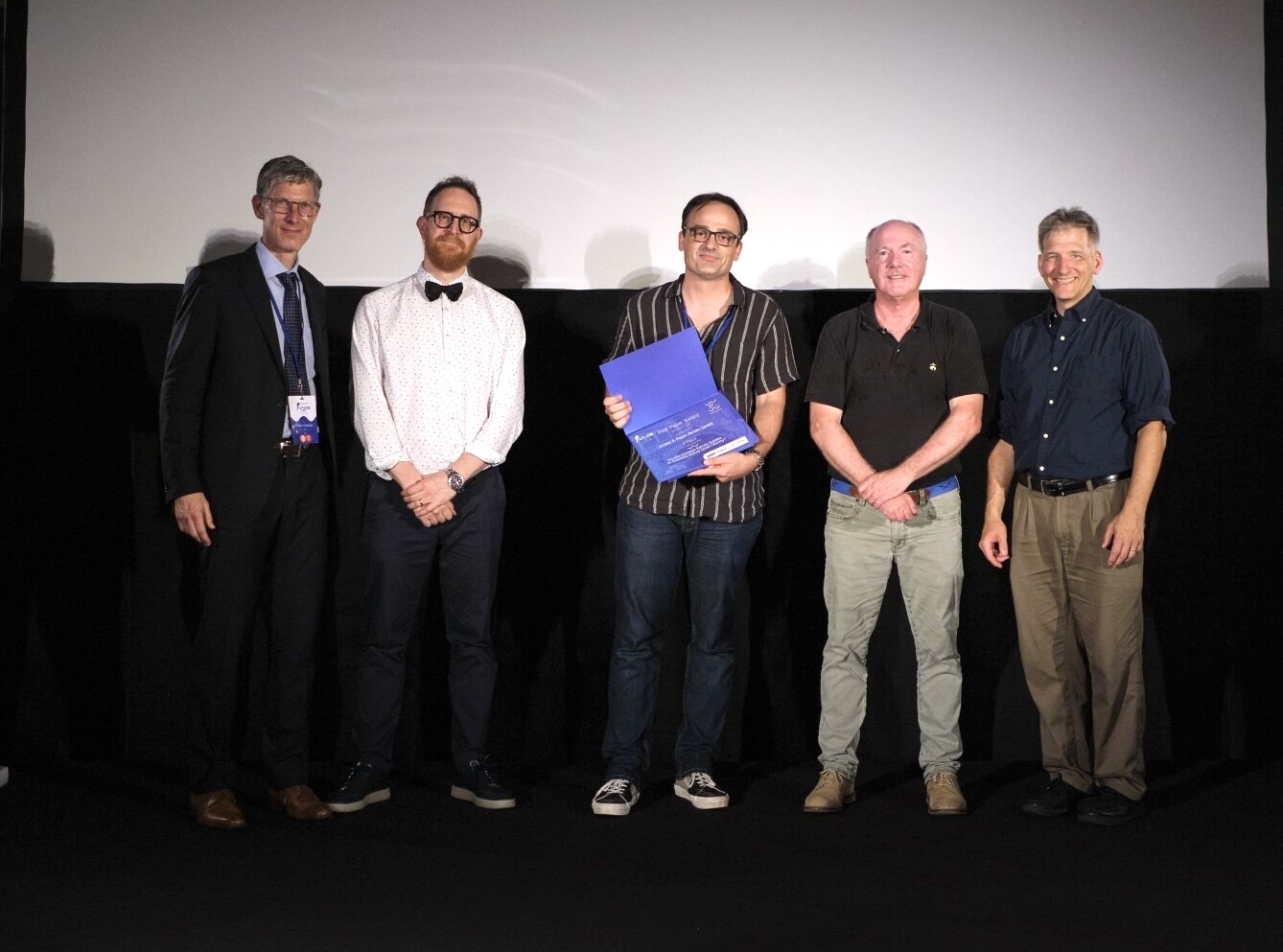Two University of Texas at Austin researchers have been honored with a Best Paper Award for their innovative research into non-Gaussian kernels for ensemble mixture model filtering. Renato Zanetti, associate professor of aerospace engineering & engineering mechanics, and Andrey Popov, postdoctoral fellow, both with the Oden Institute For Computational Engineering and Sciences, received the 2024 Jean-Pierre Le Cadre Best Paper Award given by the International Society of Information Fusion (ISIF). The award is a renowned recognition within the field of data fusion and state estimation.
Their paper, "Are Non-Gaussian Kernels Suitable for Ensemble Mixture Model Filtering?" focuses on addressing a fundamental challenge in computational sciences: accurately estimating the state of complex systems where traditional methods struggle, especially when dealing with high-dimensional data.
While spacecraft navigation was a key focus of their research, the implications extend far beyond. As Popov describes, particle filters have potential applications in power grid monitoring, where limited sensor data makes accurate state estimation critical, and numerical weather forecasting, which involves integrating large models of the atmosphere with a wealth of observational data from radar, planes, satellites, and ships.
At the core of their research is a class of algorithms known as particle filters, which approximate the results of Bayes’ theorem to infer unknown states from data/particle filters, widely used in fields ranging from aerospace navigation to power systems and numerical weather forecasting. However, they often fall short in high-dimensional applications due to computational complexity and the reliance on assumptions that are rarely met in practice.
“Particle filters approach the holy grail: true Bayesian inference, meaning that we can approximate the results of Bayes’ theorem for any distribution with arbitrary accuracy. Most state of the art methods rely on assumptions and approximations that are always violated in practice, at least for high dimensional problems," said Popov.
